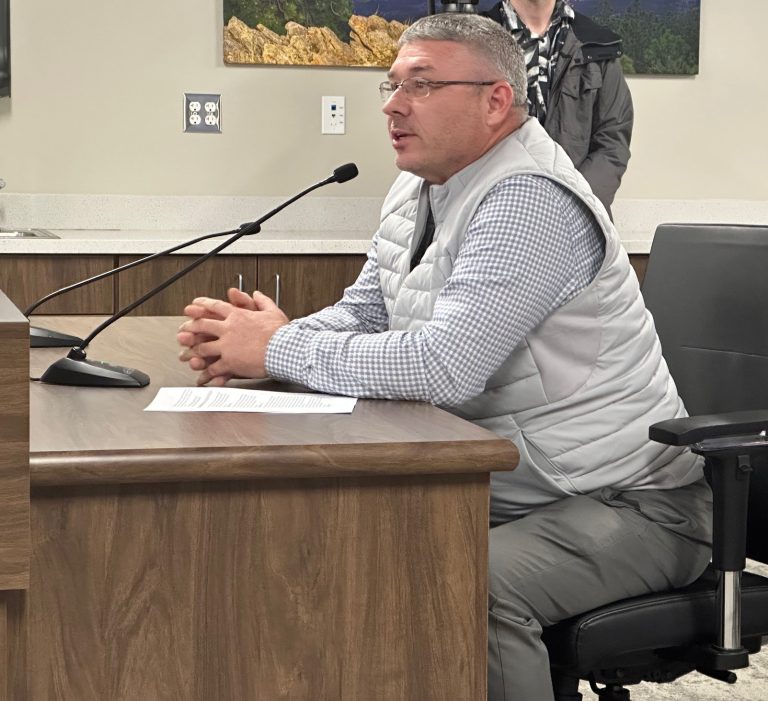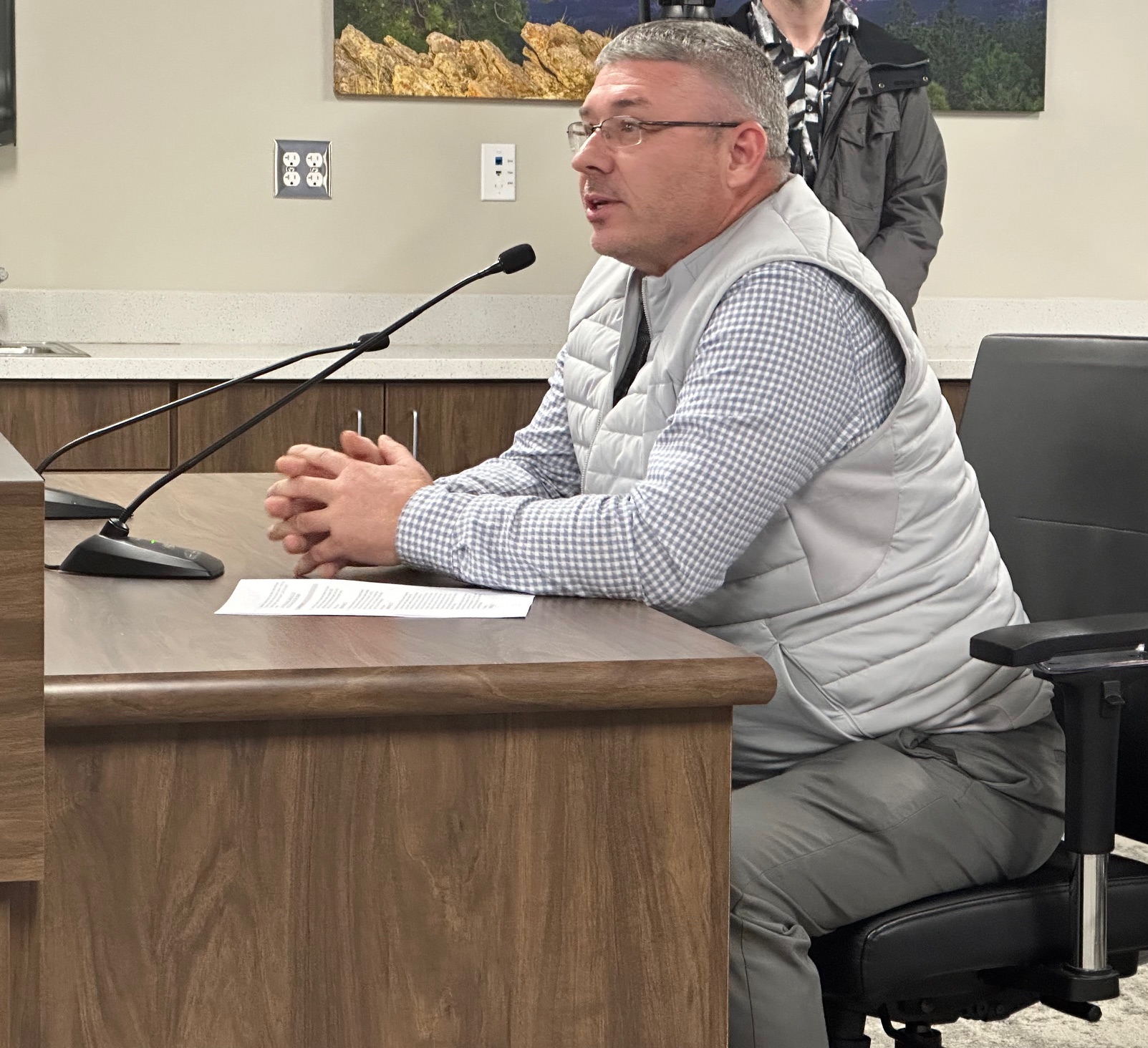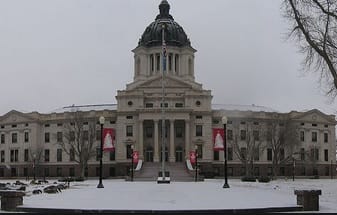HULETT, WY – Trains are bringing timber from wildfire-ravaged California to a sawmill in the Black Hills that needs the extra work, as part of a pilot program that could expand nationwide.
After a wildfire, some of the burned trees are removed to prevent them from falling on people and to reduce fuel for another fire. Burned trees may also be removed to help regenerate the burned forest floor by reducing competition for resources like sunlight, water and nutrients, which can help new tree seedlings and vegetation establish.
Depending on their condition, salvaged logs may be usable as lumber, pulpwood for paper or biomass for fuel.
In October, the Forest Service and the National Wild Turkey Federation – a nationwide coalition of turkey hunters – signed a 20-year Forest Stewardship Partnership Agreement to address wildfires in the West and promote healthy forests.
The timber transit pilot project was announced in March as part of that agreement. It is moving excess ponderosa pine timber from the Klamath National Forest in Northern California, which has been impacted by wildfires, and selling it to a sawmill in the Wyoming portion of the Black Hills, near the South Dakota border, where less timber has been available to cut in recent years.
The agreement includes an initial $50 million from the Inflation Reduction Act and Bipartisan Infrastructure Law. With this funding, the National Wild Turkey Federation is buying and selling the timber, developing additional projects, and assisting with the timber harvest and reforestation efforts.
Demand, capability in the Black Hills
The mill in Hulett, Wyoming, is one of a handful in the nation designed for ponderosa pine timber, according to Sonja Merryman, a spokesperson with the Neiman company, which owns the sawmill. She said the company hopes to expand the program to its Spearfish sawmill in the South Dakota portion of the Black Hills.
“There are not a lot of sawmills across the nation who utilize and manufacture ponderosa pine,” Merryman said. “And on top of that, ponderosa pine that’s been burned. So, that’s created this unique challenge to treat these landscapes impacted by forest fires.”
Bringing more logs to Neiman sawmills in the Black Hills also helps the company. Logging has decreased in the Black Hills as Forest Service researchers have expressed concerns about a decline in harvestable trees, due to a pine beetle epidemic and severe wildfires that affected the forest over the past couple of decades. In 2021, a Neiman-owned sawmill that employed 120 people in Hill City closed after 53 years of operation.
While the pilot program has been using federal dollars to buy and transport logs for the past month, Neiman previously invested over $3 million to test the feasibility of the project, according to Merryman.
Merryman said it’s too early to tell if the program has the potential to grow the company.
“Right now, the Hulett and Spearfish mills are only operating on one shift,” Merryman said. “As far as growth goes, we’re focusing on the possibility of getting back to two shifts.”
And that takes time, Merryman said. Finding rail cars to retrofit has been one of the program’s biggest challenges.
The U.S. Forest Service said in a statement that the findings collected from the pilot project are essential for determining the long-term viability of transporting surplus salvaged timber around the nation.
Turkeys, hunters and forests
The agreement is the largest in the National Wild Turkey Federation’s 50-year history and is one of the first long-term agreements of its kind between the Forest Service and a conservation partner.
The federation is the largest and longest-serving nongovernmental partner involved in Forest Service stewardship agreements. That’s because forests provide vital habitats for turkeys, according to Mark Hatfield, the national director of conservation services at the federation.
“This effort has been filtered through our mission,” Hatfield said. “Healthy forests across the west are vital for turkeys and turkey hunters.”
Turkeys require a combination of dense vegetation for feeding and nesting, as well as forested areas for roosting and protection from predators. They fly up into the branches of large trees to spend the night.
While the Black Hills were chosen for the pilot, Hatfield said it’s worth reminding people that “this is an industry-wide effort to understand the feasibility and long-term ability to move salvaged wood by rail.”
Hatfield said what makes the federation successful in dealmaking is its focus on outcomes “at the resource level, not the politics.”












